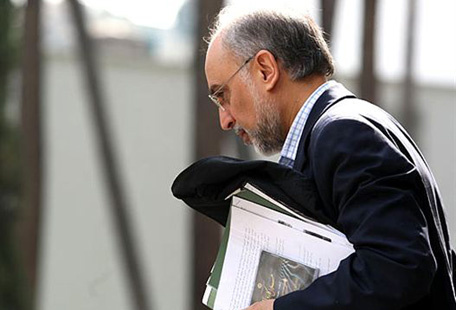Tehran and Riyadh Need No Mediators

On Friday, July 22, 2011, Iranian Foreign Minister Ali-Akbar Salehi said that he hoped Iran and Saudi Arabia could resolve “misunderstandings” in their bilateral ties. In the meantime, Pakistani President Asif Ali Zardari’s visit to Tehran has raised speculation about Islamabad’s mediation between Tehran and Riyadh. Iranian Diplomacy discussed with Hassan Hanizadeh the prospect of reconciliation between the two regional powers after relations turned stormy following the Arab Spring.
IRD: Foreign Minister Ali-Akbar Salehi has recently spoken of resolving misunderstandings with Riyadh. Is there any prospect of rapprochement in the short term?
HH: Iran and Saudi Arabia’s relations have vacillated between friendship and enmity during the years after the Islamic Revolution. Saudi Arabia has the larger share in tensions. This country lacks the required cultural and political potential to become a regional power, so it has decided to undermine Iran's relations with other Muslim countries. The Saudis believe that the larger Iran's role in the region and the world, the more isolated Riyadh will become. There is a converse relation between Iran and Saudi Arabia’s power, so this country is an unreliable political partner.
Iran's diplomatic strategy has been establishing ties with all Muslim countries, but Saudi Arabia, more often than not acting as the United States’ proxy, tries to thwart Iran's approach towards other countries. The problem will exist as long as Saudi Arabia lacks an independent foreign policy. Riyadh becomes a proponent of détente only when it falls into disagreements with the US, mostly about human rights issues. Personally, I’m not optimistic about proximity talks between Tehran and Riyadh.
IRD: So you believe that Saudi Arabia calibrates its ties with Iran to US demands?
HH: Yes. For instance, Egypt tried to get closer to Iran after the ouster of Mubarak. Saudi Arabia felt a threat and announced that it will donate four billion dollars to the country just to thwart the rapprochement process.
Iran has expressed interest in negotiations in order to take away any excuses from Saudi Arabia. However, the prospect of talks is gloomy as long as Riyadh continues its misdirected, sectarian policy against the Bahraini Shi’as, Iraq, and Lebanon.
IRD: Do you agree with some analysts that Washington has outsourced its regional policies to Saudi Arabia?
HH: Absolutely. Washington has made use of Riyadh’s massive wealth to suppress anti-American forces in the region. Saudi Arabia’s petrodollars have been largely spent to conspire against the Islamic Republic of Iran. Saudi Arabia does not follow a democratic model and its governance is reminiscent of the Middle Ages.
IRD: Do you think other regional states such as Pakistan, Kuwait or Turkey could mediate between Iran and Saudi Arabia?
HH: There is no advantage in mediation. Turkey follows a dual policy and takes every step in the direction of its national interests and its neo-Ottoman strategy. Direct, bilateral talks between Iran and Saudi Arabia would be more beneficial.

